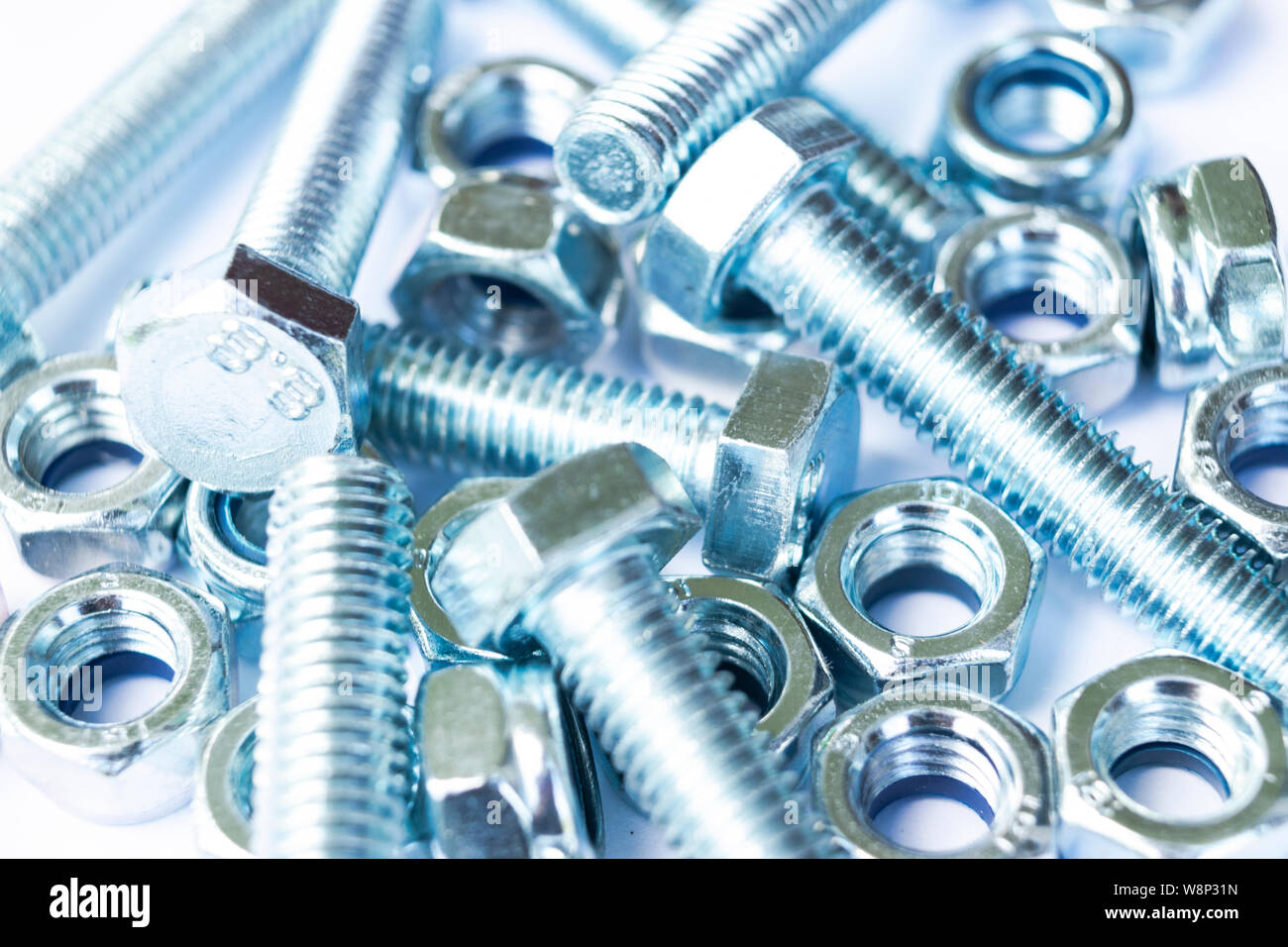In the world of building, automotive maintenance, and innumerable DIY endeavors, fasteners and screws play an indispensable role, yet they often go unnoticed. These simple fasteners are the unheralded heroes that hold together the very structures and items we rely on every day. Without them, our household items would fall apart, our cars would falter, and our homes would lack the stability we often take for granted. Understanding the different types of nuts and bolts, their specific uses, and how to select the appropriate fastener for any project is crucial for anyone looking to construct or fix.
The following comprehensive guide is intended to explore the vast world of nuts and bolts, from the basics to the advanced distinctions. We will delve into the various categories of fasteners available, including standard and specialty options, their specific applications, and the materials used to make them. Regardless of whether you are a seasoned expert or a weekend DIY enthusiast, this guide will help you to make informed choices, guaranteeing your projects are built to last. By the end, you will not only recognize the significance of these small yet mighty components but also feel sure in selecting the appropriate fastener for your needs.
Categories of Nuts and Screws
Fasteners are essential components widely used across various fields, each serving distinct functions tailored to particular applications. The most popular types of bolts include hex-head bolts, carriage bolts, and lag bolts. Hex bolts have a polygonal head and are generally used in mechanical constructions due to their increased strength and adaptability. Carriage screws, characterized by their circular tops and flat sides, are ideal for fastening wood, providing a neat surface on one side while ensuring a tight grip on the other. Lag bolts, on the contrary, are heavy-duty fasteners designed for similar materials, making them essential for structural and carpentry tasks.
In addition to bolts, fastening components play a key role in ensuring the integrity of joints. Regular nuts, anti-vibration nuts, and flanged nuts are commonly used in different scenarios. Regular nuts fit onto bolts to fasten them in position, while lock nuts incorporate mechanisms that prevent loosening due to movement. Washer nuts include a integrated washer that balances load and enhances grip, making them suitable for applications where a firm hold is necessary. Grasping these various types of fasteners and their uses is important for selecting the correct fasteners for a project.

In summary, the decision of fasteners and bolts is based on factors such as the materials being connected, the needed strength of the bond, and the surroundings they will be subjected to. Whether it is for large-scale construction or lighter automotive repairs, the correct selection of fasteners and bolts can greatly impact the functionality and strength of a project. Familiarizing oneself with the numerous types of fasteners available, along with their specific attributes, empowers DIY enthusiasts and contractors alike to make informed choices in their assembly requirements.
Materials and Coatings
When it comes to fasteners and hardware, the material used plays a crucial role in determining their stability, durability, and suitability for particular applications. Steel is the most common material due to its high tensile stability and affordability. Variations like corrosion-resistant steel offer additional rust resistance, making them ideal for outdoor and aquatic environments. Moreover, other substances such as bronze and titanium are often selected for their distinct properties, including lightweight options and resistance to certain chemicals.
Finishes on nuts and hardware are equally important when it comes to functionality and longevity. Zinc plating is commonly used to provide a degree of rust resistance, but this technique isn't as robust as double-dipping, which involves a thicker layer of zinc to better withstand severe environments. Other coatings, like epoxy or powder coating, can offer additional protection and visual appeal, with variations tailored for unique conditions or visual requirements.
Grasping the appropriate materials and finishes for your hardware is crucial for ensuring longevity and dependability in your projects. When choosing nuts and hardware, think about not just their stability and weight-bearing abilities but also the environment in which they will be used. This knowledge will help you choose the optimal options to suit your requirements and enhance the overall functionality of your assembly.
Specialty Fasteners
When tackling unique projects, specialized fasteners often serve as key tools in guaranteeing longevity and performance. From safety fasteners to anchor bolts, these specific components cater to unique requirements that regular nuts and bolts may not meet. For example, security nuts and bolts are designed for applications where theft or unauthorized removal could pose a risk, making them perfect for public installations and equipment that must stay safe.
Another key category comprises nylon lock nuts, which incorporate a nylon insert that provides resistance against the bolt threads to stop failure. These fasteners are particularly helpful in environments subjected to oscillations, such as automotive applications or machinery installations, where maintaining tight connections is vital. Their special design helps prolong the longevity of assemblies by reducing the chance of fastener failure due to vibration-related loosening.
In conclusion, anchor bolts serve a critical role in construction and foundation work. These fasteners attach structures to concrete, providing strength and strength in various applications, from buildings to bridges. Knowing when to use stretch bolts versus other types of anchors can significantly boost construction outcomes, ensuring that projects are both safe and compliant with building standards. Exploring these specialty fasteners equips DIY enthusiasts and professionals alike with the insight necessary for effective and reliable applications.
